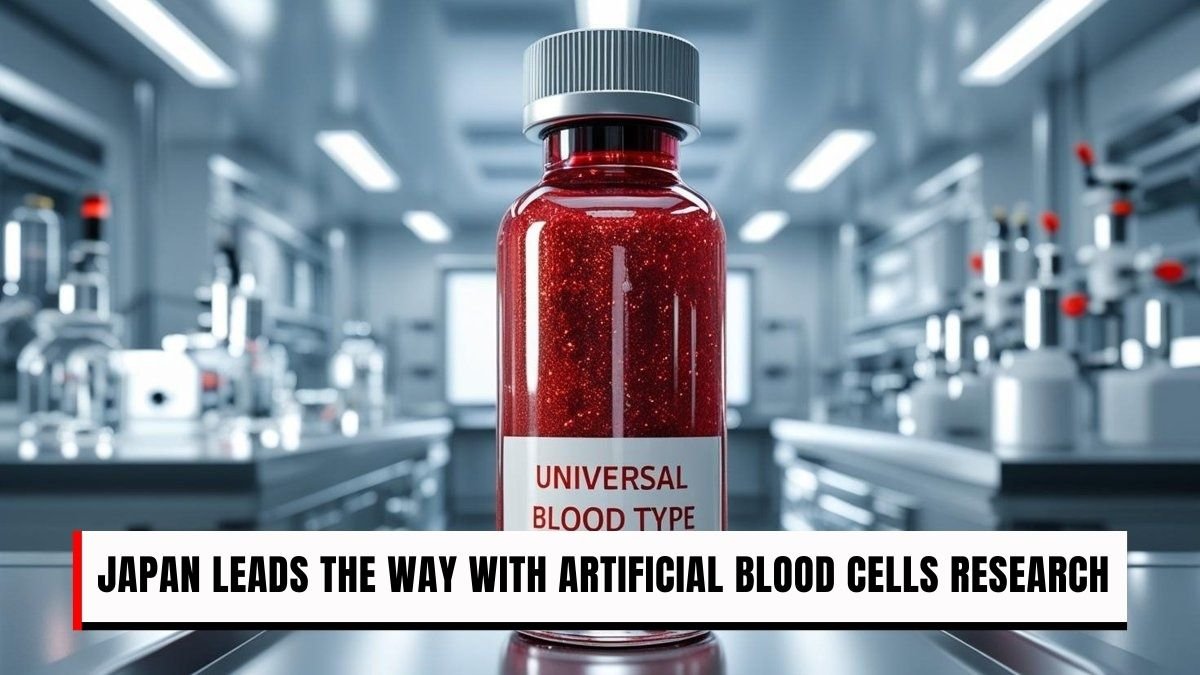Japan Leads the Way with Artificial Blood Cells Research: Modern medical science is constantly touching new dimensions. The technologies being developed to save lives bring new hope to every patient today. In this direction, Nara Medical University of Japan has taken a revolutionary step. The university has announced that it will begin clinical studies on artificial red blood cells, aimed at providing blood in emergency situations. If this study is successful, it will prove to be a new revolution in medical science not only for Japan but the entire world.
Blood shortage and problems
The importance of blood is indispensable in survival. The timely availability of blood during accidents, surgery or serious illnesses plays a decisive role in saving lives. However, in countries like Japan, the population is declining and the number of blood donors is also decreasing. This is increasing the possibility of blood shortage in hospitals and medical institutions. This is why researchers decided to find alternatives that can overcome the problem of blood shortage and be available immediately in any emergency.
Nara Medical University’s initiative
Nara Medical University plans to start clinical trials of artificial red blood cells from March 2025. The university aims to bring these cells into practical use by the year 2030. This initiative will probably be the first in the world, which can add a new chapter to the health sector.
Difference between traditional blood and artificial blood
Blood donated from the human body can only be preserved for about a month at cold temperatures. In contrast, the artificial blood cells developed by researchers at Nara University can remain safe at room temperature for up to two years. This feature is extremely useful in emergency situations. In addition, it is necessary to know the blood group of the patient before transfusion of normal blood, whereas artificial blood cells can be given directly to a person with any blood group. This makes its use easy and safe during emergency transportation or in remote areas.
Clinical trial plan
The initial study will include 16 healthy adults. Each participant will be given 100 to 400 ml of artificial blood cell solution. If no side effects are found in the experiment of up to 400 ml, the next phase will focus on a thorough investigation of its effect and safety. Under normal medical conditions, patients are given 800 ml of blood, so this test is important for the initial phase.
Safety and purity
Special care has been taken in making these artificial blood cells. These cells are free from any virus or infection. These have been prepared from previously donated and now expired blood. Thus, not only resources have been reused, but it also provides a safe alternative for human health.
Usefulness in emergency situations
In situations like natural disasters, road accidents, war or epidemic, availability of blood is always challenging. Many times patients lose their lives due to non-availability of the right blood group. If artificial blood cells are successfully made available, blood can be given immediately in any situation. This technology will also be useful in those areas where it is difficult to reach a hospital or blood bank.
Researchers’ vision
Professor Hiromi Sakai of Nara Medical University says that the need for artificial red blood cells is extremely important because at present there is no safe alternative to red blood cells. This technology can emerge as a new milestone in medical science.
Global importance
If this clinical trial is successful, its utility will not be limited to Japan only. This technology will prove to be extremely valuable for emergency medical services in India and other developing countries. In cases of accidents and operations, it can reduce the risk of life due to lack of blood. Also, it can open doors to new possibilities in medical tourism and global health services.
Future Prospects
This technology is likely to be used practically by 2030. It will not be limited to blood transfusion but can also be helpful in controlling oxygen supply in the body, treatment of serious diseases and other medical procedures. If this technology succeeds, the traditional perception of blood banks and blood can change and medical science can enter a new era.
Conclusion
This research of artificial red blood cells is a new ray of hope for humanity. Japan has once again demonstrated how deep its commitment to science and innovation is. In the coming times, this technology will be able to save lives that are lost today due to lack of blood. If this experiment succeeds, it will prove to be a precious gift not only for the medical field but for the entire humanity.
